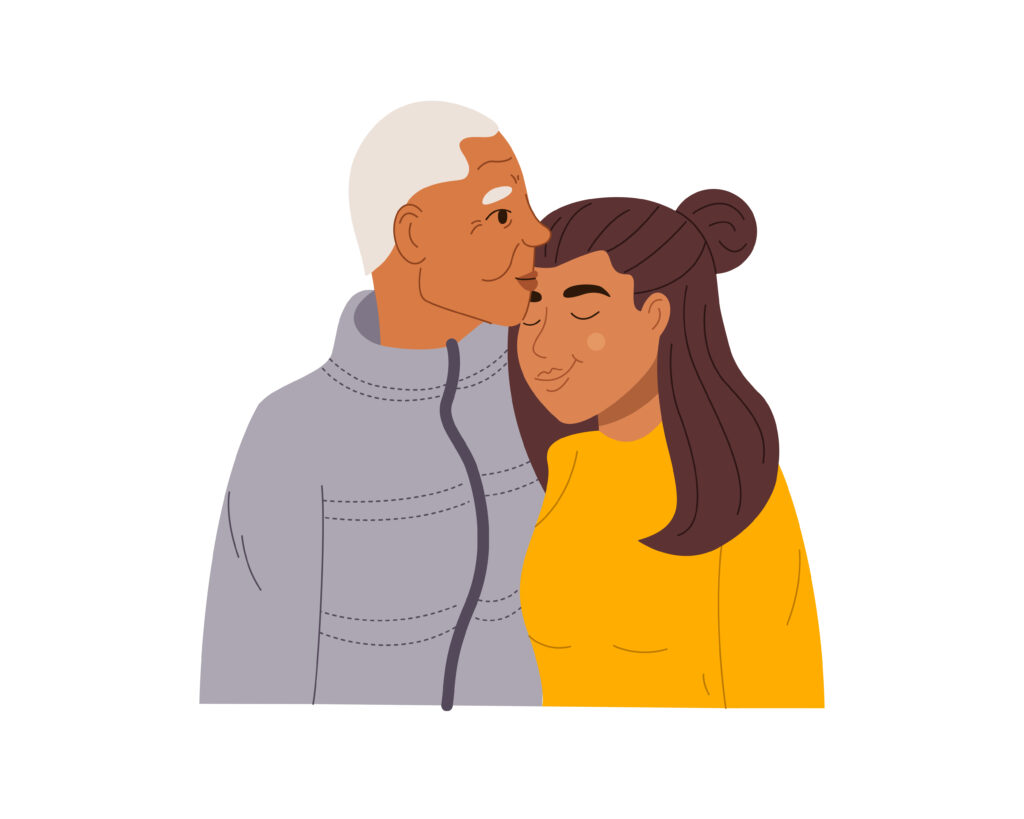Last updated on December 20th, 2024 at 01:01 pm
In relationships, individuals have varying preferences and criteria they seek in their partners. Age is one factor that can either enhance or challenge a relationship, particularly when there is a considerable age difference between the partners. This article will explore whether a significant age gap in a relationship poses a problem.
The Dynamics of Age Differences in Relationships

Age is more than just a number in relationships. It can influence the dynamics in various ways. Some aspects that may be affected by the age difference include:
Life Experience
The age difference also brings a variation in life experience. One partner may have encountered specific life events that the other has not, which can influence their perspectives and decision-making. For instance, a younger partner might have a different outlook on commitment and family compared to an older partner who has already navigated those stages.
Values and Beliefs
Age can also influence the values and beliefs of partners. The older partner may possess different values and beliefs that they adhere to, potentially leading to conflicts with their younger partner. These differences may encompass religious beliefs, political views, and cultural practices.
Physical Health
As individuals age, their physical health may decline, which can become a concern in the relationship. The older partner may have health conditions that require attention, while the younger partner may still be in good health. This situation can create strain in the relationship, particularly when the younger partner is not prepared or able to provide the care that the older partner needs.
Is a Large Age Gap a Problem in a Relationship?
The answer to this question is not simple, as it depends on several factors. Here are some considerations when determining whether a large age gap in a relationship is a problem or not:
Emotional Maturity
Emotional maturity is a crucial element in any relationship. When both partners are emotionally mature, they can navigate the challenges that arise from a significant age difference. Conversely, if one partner is emotionally immature, they may struggle to manage the disparity in life experiences and values.
Compatibility
Compatibility is essential in any relationship. Partners with a considerable age difference may possess varying interests, hobbies, and lifestyles, which can influence their connection with one another. When partners are compatible, they can discover ways to bridge the gap and cultivate a fulfilling relationship.
Acceptance
The partners should be open to accepting each other’s differences, including any age gap. If one partner feels uneasy about the age difference, it can lead to tension and strain in the relationship. Both partners must feel comfortable with the age difference and be prepared to make the necessary adjustments to ensure the relationship works.
Support System
The support system of the partners is also essential. They may encounter criticism and negative reactions from family, friends, and society due to the age difference. If the partners have a strong support system that accepts and backs their relationship, it can help them navigate the challenges associated with the age difference more easily.
Can a Relationship Last with a Large Age Gap?
Yes, a relationship can last with a significant age gap, as age is merely a number and does not inherently dictate the success or failure of a relationship. Many couples with considerable age differences have established successful and enduring relationships, and their love and commitment to each other can be just as strong as that of couples of similar ages. What matters most is the level of understanding, mutual respect, and compatibility between partners, rather than their age difference.
How much of an age gap is too large in a relationship?
Determining how large an age gap is too significant in a relationship can be challenging, as it depends on various factors, including cultural and societal norms, personal preferences, and the couple’s unique circumstances. However, generally speaking, a notable age gap of more than 10-15 years can present challenges and potential issues for couples, such as differences in life experiences, perspectives, and expectations. These differences can influence the dynamics of the relationship, particularly in areas like communication, social interactions, and future plans.
What is an Acceptable Age Gap?

There is no specific age gap that is universally deemed “acceptable” in a relationship, as it varies based on individuals and their circumstances. As long as both partners are legally consenting adults, the age gap is a matter of personal preference and choice. However, some couples with an age gap of 5-10 years may encounter fewer challenges than those with a more significant age difference, as they may share more similar life experiences and possess a closer generational understanding. The key to a successful relationship is mutual understanding, respect, and compatibility, which can be nurtured regardless of age.
Can a 20-Year Age Gap Work in a Relationship?
Yes, a 20-year age gap can work in a relationship, but it depends on the individuals involved and the dynamics of the relationship. Age difference does not necessarily determine the success or failure of a relationship. As long as both partners share a strong emotional and physical connection, communicate openly and effectively, and respect each other’s opinions and choices, they can build a happy and fulfilling relationship. However, a 20-year age gap may present some challenges, such as differing life experiences, expectations, and cultural backgrounds. Therefore, it’s essential to maintain open and honest communication, understanding, and mutual respect to make the relationship work.
Conclusion
In conclusion, a significant age gap in a relationship is not inherently problematic; rather, it depends on various factors. Emotional maturity, compatibility, acceptance, and a strong support system are crucial elements that can help make a substantial age difference work in a relationship. It is essential to assess these factors to determine whether the age difference poses an issue.


